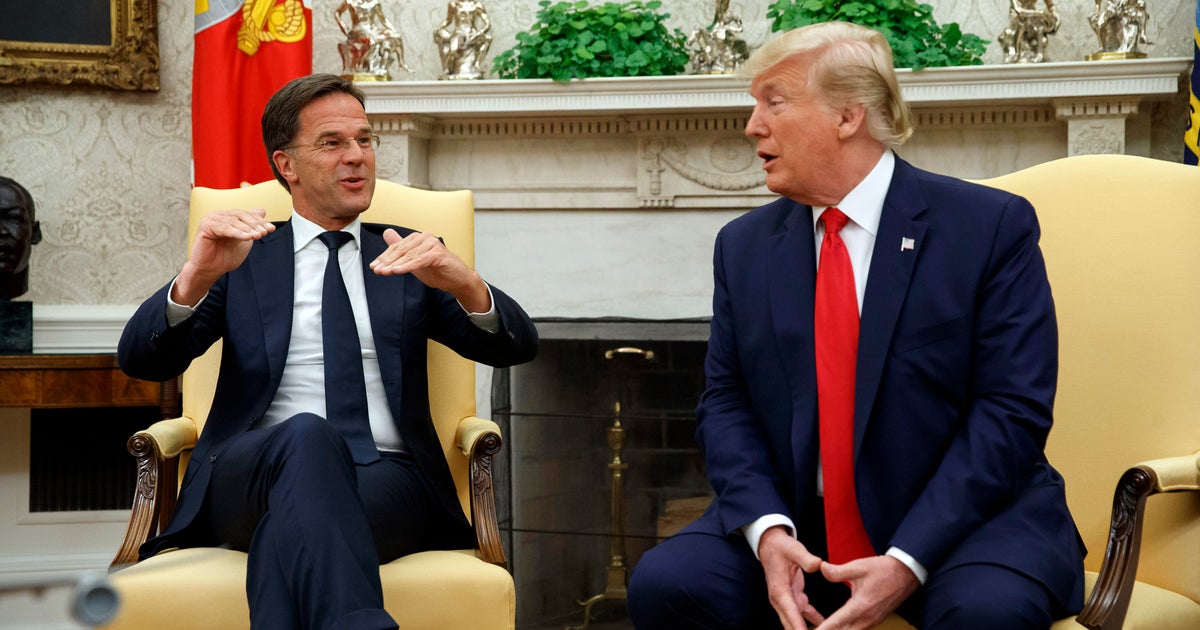Mike Pence says Americans are "safer today" after Soleimani's death
Washington — Vice President Mike Pence said he believes Americans are "safer today" after President Trump ordered a strike that killed Iranian Major General Qassem Soleimani. Pence addressed fears of an increasing conflict with Iran during an interview with "CBS Evening News" anchor and managing editor Norah O'Donnell.
"I believe we are safer today than before President Trump ordered our military to take out Qassem Soleimani," Pence said.
The president on Wednesday said Iran appears to be "standing down," after the country launched a missile strike on the Al Asad and Erbil bases in Iraq, which houses U.S. forces. No American or Iraqi troops were killed in the attack, which came in response to a strike last week that killed Soleimani, the head of Iran's elite Quds military force.
Supreme Leader Ayatollah Ali Khamenei vowed to exact revenge and on Wednesday, he called Tuesday's strike a "slap" to the Americans. He also said the real revenge would be forcing the U.S. to leave the region, a sentiment echoed by Iran's President Hassan Rouhani.
Read O'Donnell's full interview with Pence below:
Norah O'Donnell: Joining us now for his first interview since the attack, Vice President Mike Pence. Mr. Vice President, thank you so much for joining us.
Vice President Mike Pence: Thank you. Good to be with you.
O'Donnell: Iran's supreme leader called the attack a "slap in the face." But are you worried a punch in the gut may be around the corner?
Pence: Well, I think the American people can rest easier tonight thanks to the leadership that President Donald Trump provided and the extraordinary and courageous professionalism that our military demonstrated over the last several weeks. Despite missile attacks yesterday, again because of the professionalism— of our military personnel and their preparedness— there were no American casualties, no Iraqi casualties, and our information as of this afternoon continues to be that Iran is standing down.
O'Donnell: I heard that. And the president saying that Iran is standing down. But— how concerned are you that Iran is now gonna begin a covert war?
Pence: Well, we're dealing with a country that's been the leading state sponsor of terrorism for more than 20 years. And so we'll continue to be prepared. We'll continue to confront Iran in the way that President Trump has done since early in this administration.
O'Donnell: So what is the strategy in Iran? And is regime change the ultimate strategy?
Pence: We don't seek regime change in Iran, but we want to see the regime change its behavior.
O'Donnell: You were there in the Situation Room last night with the president and other top national security officials. Thankfully, no American lives were lost. Did we get lucky? Or did the Iranians intentionally miss?
Pence: Well, let me say that the fact that no American lives were lost was a great relief I know to the president, to myself, to our entire national security team, as it is to every American.
O'Donnell: Were we warned in advance?
Pence: We had received intelligence over the previous several days that there may be attacks coming. We heard the threats. The world heard the threats from Iran. We moved forces. We provided a level of force protection at the president's direction. And in a very real sense, we had the early warning systems that allowed us to move Americans and our allies out of harm's way.
O'Donnell: Everybody who's related to one of those soldiers stationed in the Middle East is worried. Are we safer now?
Pence: I believe we are safer today than before President Trump ordered our military to take out Qassem Soleimani. This was a man who had been leading a terrorist state-sponsored organization in the region sowing violence. But what President Trump, our commander in chief, demonstrated was we have a president who's also willing to use American military might to protect American lives.
O'Donnell: One might say that taking out Soleimani is like taking a baseball bat to a hornet's nest. And those hornets are Iranian proxies, proxy groups. Are you convinced that they won't come after Americans?
Pence: Well, the challenge we face now is that Qassem Soleimani was in fact the primary leader of those Iranian-sponsored militias across northern Iran and their influence in Syria as well. But we're sending a very clear message as we did with those five airstrikes to militia bases—
O'Donnell: He didn't act alone, as you know, and he act—
Pence: But we'll not tolerate violence.
O'Donnell: And he acted at the blessing and with the blessing, I should say, of the Ayatollah, the supreme leader.
Pence: There's no question. And frankly, we're receiving some encouraging intelligence that Iran is sending messages to those very same militias not to move against American targets or civilians. And we hope that that message continues to echo.




